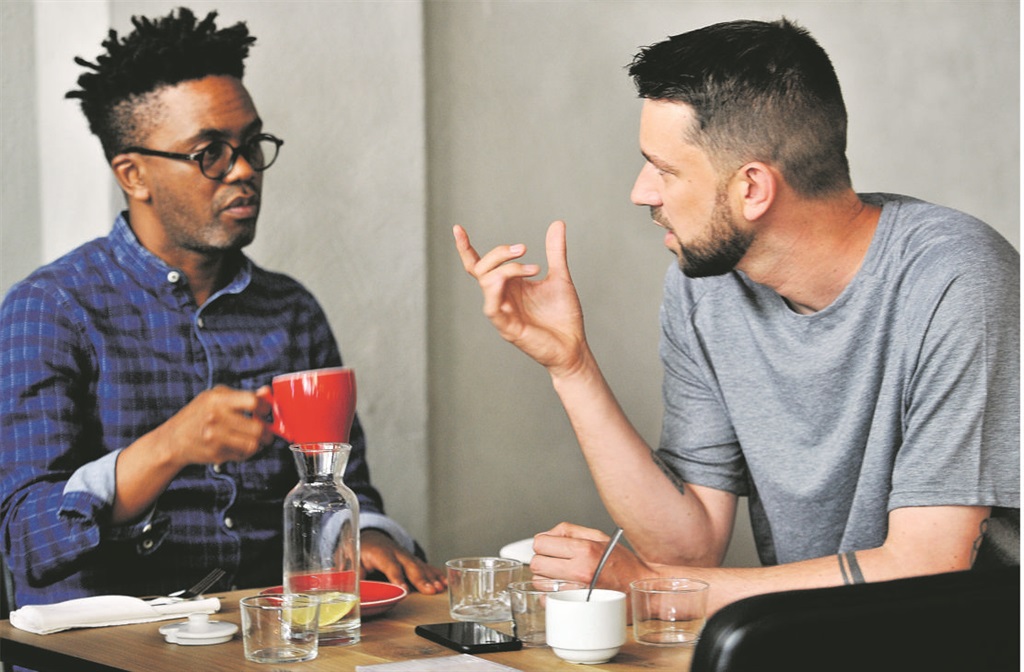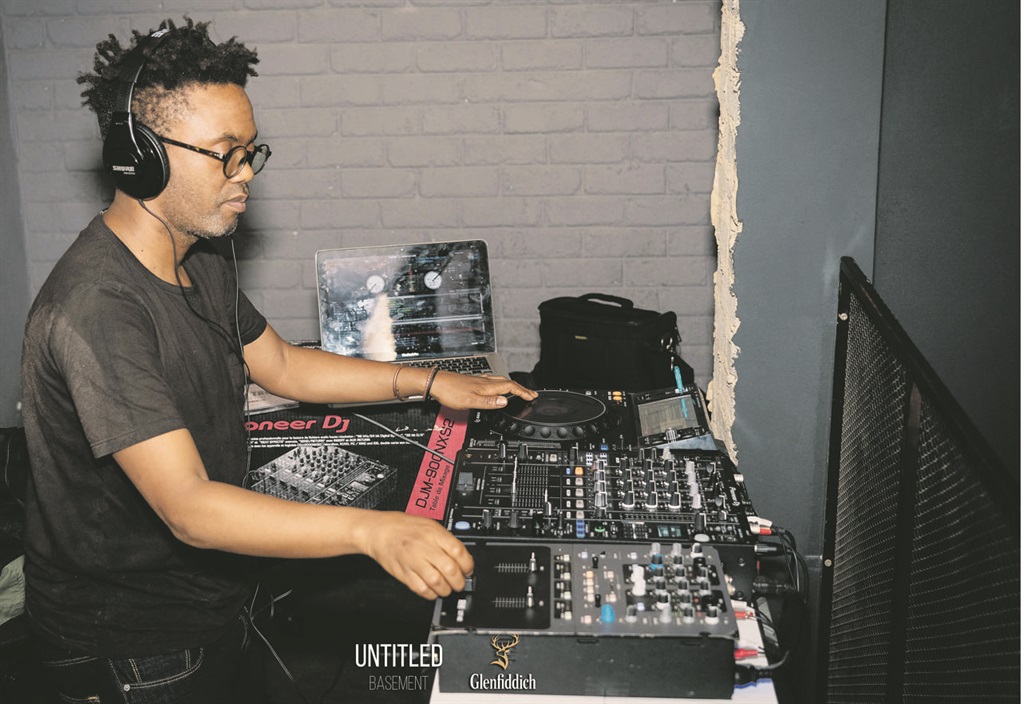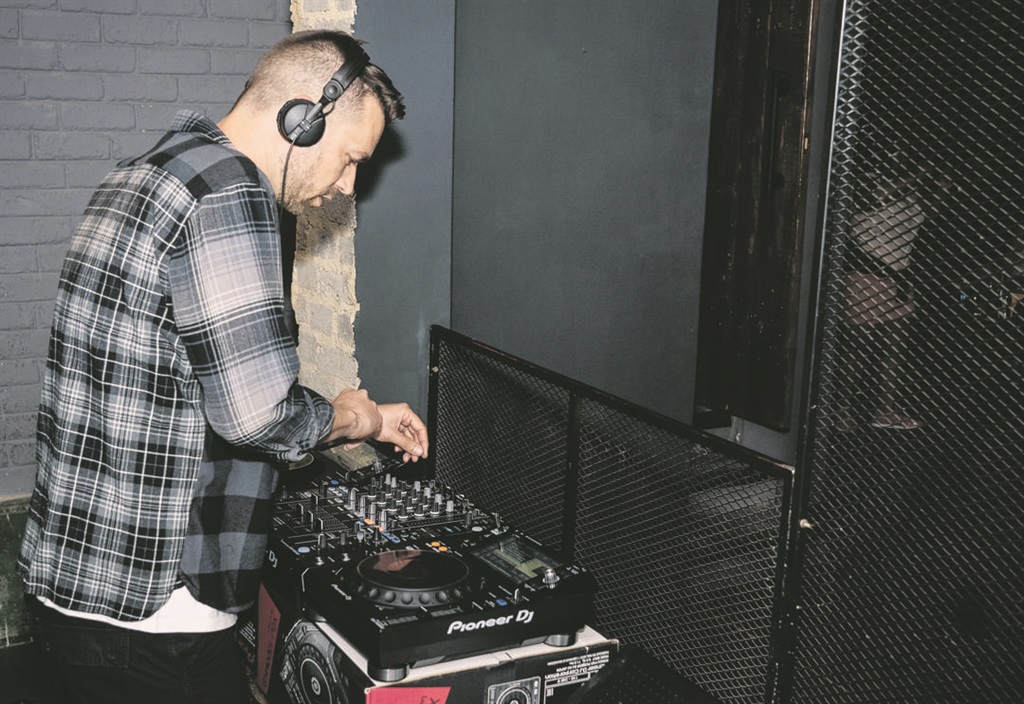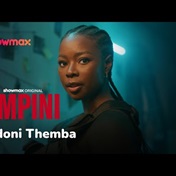
These days, everybody and their mom is trying to be a DJ, but what does it really take? #Trending decided to talk to two established names and pick their brains about the business of DJing. Phumlani S Langa sits down with Kenzhero and Kid Fonque for a hustler's guide to life on the decks.
Kenzhero and Kid Fonque are two of the biggest names on Joburg’s DJ scene right now. Over coffee at Kenzhero’s swanky establishment, The Artivist in Braamfontein, we delve into what it takes to make it.
So, when did the two of you first fall in love with playing the decks?
Kenzhero (K):I don’t even remember, it may have started when I used to sing in the shower.
Kid Fonque (KF): You don’t even smoke weed, how can you not remember?
K: I’m sticking with singing in the shower.
KF: I was brought up in a household that was full of music. I started DJing in high school at Roodepoort College.
K: And you can’t even speak Afrikaans.
KF: Nee. Every day of the week, there was a different genre. All of my friends were into House and techno, and I did trip-hop and hip-hop. Back then, kids didn’t have a clue, especially on the West Rand.
K: Falling in love and starting out are different things, though? I fell in love with it. I mean the CDJ [a specialised digital music player] didn’t even have pitch [a gauge for the speed of a track] at all. A DJ would play a song on top of another song.
Is it good that there’s so much technology at a DJ’s fingertips now? Or are you opposed to new systems that do half of the job for you?
K: Technology must be there to help things improve. How could we accept something like microwaving our food, but be opposed to technology in DJing? I will say this, though, technology doesn’t make a bad DJ good. It makes a good one better.
KF: I fought technology for the longest time. I mean, when it was vinyl and people shifted to CDs, I wasn’t feeling that. Then I started rocking up to gigs where there was no vinyl on the turntable and so I thought, shit, I’m going to have to change.
When CD went to USB or Serato, I was also like, no. I bought everything you might need to run Serato and, right before I unpacked it, I sold it and bought some
CDJs with USB and it has been that for
me ever since.
It’s all about what you might prefer, it’s like a cellphone – Android or Apple.
K: I started on USB, but very slowly.
KF: It’s easier, you just bring a stick.
I’ve noticed around clubs and at parties in Joburg that DJs will be behind the decks twisting nobs and moving faders, but nothing that they’re doing is audible – they twist away, but the track sounds the same throughout. What’s with that?
KF: A premix.
So, what’s the state of the local scene?
K: Alan (Kid Fonque) could probably say more as he has had a passion for promoting as well as pushing and finding talent locally as he was a record label and manager. I’m rather stuck in the lane of DJing.
KF: I spent 10 years at Soul Candi Records and it was all about finding local talent. When I was there, a few big names were going through their come up – Lulo Café, Mi Casa, so many guys. When Soul Candi disappeared, I was caught wondering what I would do.
The likes of Black Coffee, Culoe De Song and DJ Shimza have large followings overseas. Do you think their Afro sound has become what is presented as the primary sound of our country?
K: When I play abroad, the expectation
is that I’m going to play gqom.
KF: Which is your vibe right now.
K: I do love it. But they always say: ‘Do something African.’ Particularly in Sweden. I was told they get a lot of US DJs, so they’re good with hip-hop. It was an interesting experience to navigate through that as a DJ. It was a blessing because it made me think that I had to fuse more of myself and my pride for my country into the music.
Some DJs host a mixtape with beats that they’ve procured from producers. Others construct the music themselves. Which approach is better, to curate or to create?
K: In hip-hop, we have seen this a lot. People will take a song, cut and paste a sample and call it Juicy [a song by Notorious B.I.G.]. Then Diddy will say he’s the producer. Now, Diddy was probably in the studio and called Quincy [Jones] or whomever. He might’ve even told the engineer or producer to turn a snare up, which then makes the beat a hit. He produced all of that – it’s his way of producing.
KF: That’s the reality of the day – industry rules. It is, however, relevant to produce if you DJ. I don’t make much music any more as I’m managing a label, but you need to. Hip-hop is now pop and, for everyone in that space, getting radio play is critical as your bookings get revved up.
K: These days, a loop in [copyright] law is that if I buy a beat and it makes noise on the radio, that’s my beat. Of course, issues come up if certain things weren’t agreed on. Diddy could come back and say to that producer: ‘I was the one who told you about that snare.’ Now you’re in a predicament.
KF: I mean, we saw it with the whole Distruction Boyz and DJ Lag thing. That still hasn’t really been settled.
What is the one thing a set needs to have for it to be considered fly?
K: For me, it’s unpreparedness, which is strange to say. Being able to think on my toes. Sometimes the set you play at home is perfect to you. Then you play it out and, by the second song, people are off the dance floor. Now you must get them back. It’s never a bad idea to have pockets in your set – songs you know fit – but when you rely on this, it starts sounding like ...
KF: A premix.
What can someone who’s struggling to get their sound out of the bedroom do? Is it important to be seen at events?
K: Out of sight is out of mind.
KF: If a DJ wants to play your club, Kenny, they’d have to have been here before. I’m always amazed when I speak
to people who tell me they’re struggling to come up and I ask them if they even go
to the events. Usually not. You want to
play at Kenny’s spot, but you haven’t spoken to him.
K: You’ve also got to become self-sufficient. I taught myself how to DJ. Nobody sat me down or anything. I used to scratch things and mess things up badly, but I think my style came from that. When you’re mentored, there might be a lot of restrictions. I was playing multigenre from the get-go because I was not told I couldn’t.
KF: Another thing I would suggest is to stop moaning about why you aren’t on anyone’s line-up or playing at all the parties. Do your own parties. Be proactive. If you want something to happen, then you must make it happen.
How long does it take to make it?
KF: I see these kids and they’re like, 20 years old and they want to be at the top like, tomorrow. You need to slow down a bit. I’ll be 40 next year and I feel like I’m nowhere close.
K: Exactly, man. Look at someone like Kwesta. He’s been making records for years now and his stuff was always almost there, but now he’s blown up.
KF: You need a little tact as well as patience in this game. If you send music, make it easy for the person to listen to. Explain a little about the track; sell yourself.
Their biggest tip for newcomers is to mind the interchange from one DJ in a club to another. They explain:
KF: If you’re opening for an artist, don’t play that person’s songs. We come from the school where you’ll set up the next act and help them ready the table before you leave.
K: These new kids will wrap up, pull the stick out and leave the booth. I’ve played sets after names like DJ Fresh who would hang around when he was done just to make sure everything was cool for me and my set. Be humble, yeah, it will only open things up for you.




 Publications
Publications
 Partners
Partners










